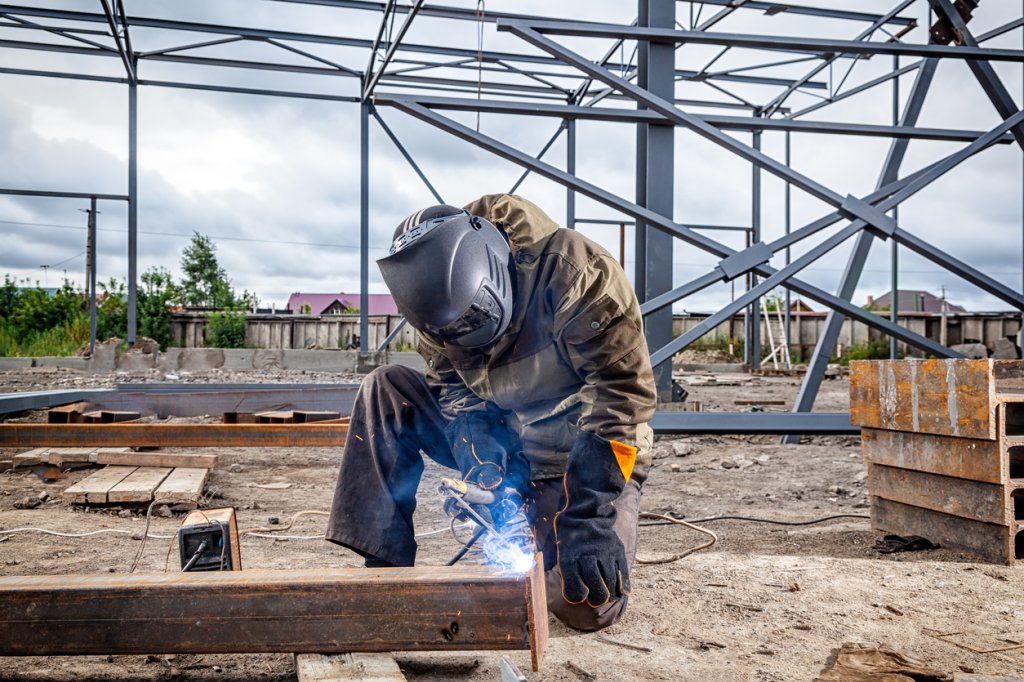Burn Hazards & Prevention Safety Talk
Construction work is by nature typically much more dangerous than working in an office or in retail. That’s why it’s important to take necessary steps to ensure the safety of yourself and your coworkers.
One of the most common risks faced by construction workers is burns. In fact, there are over 40,000 hospitalizations each year due to burns—with a large number attributed to burns received in the workplace.
The three main types of burns
To better understand the risk of burns, you should first learn about the different types of burns. Burns aren't always as simple as touching something that’s too hot. That is one way to burn yourself, but it's not the only way.
Some types of burns can be easily avoided with proper care and caution. Better understanding the three main types of burn injuries can help you avoid them or react appropriately in case of an emergency.
These are the three different types of burns:
Thermal burns
Thermal burns are what most people think of first when burns are mentioned. These burns occur due to contact with a hot surface, fire, hot liquids, or an explosion.
Sunburn can be considered a thermal burn as well.
Chemical burns
Chemical burns result from skin or eye contact with a strong acid, corrosive, caustic, or alkaloid. Many of the chemicals used in different processes on construction sites can cause a chemical burn injury.
Some common household products can also produce severe chemical burns if not handled correctly.
Electrical burns
Electrical burns occur when an electrical current has passed through the body. When the current travels through the body, resistance from body tissue results in a serious burn.
Electrical burns can affect both the inside and outside of the body. Usually where the burns are on the outside of the body will show where the electrical current entered and exited the body.

Burn prevention tips
Now that you are aware of the different types of burns, the next step is learning how to avoid burn risks. Like with most other work-related risks, the best way to avoid burns is by staying vigilant. Paying attention and being aware of your surroundings greatly lowers the risk of suffering a burn injury.
The following burn prevention tips will help keep you and your co-workers safe:
How to prevent thermal burns
The best way to reduce your chances of suffering from a thermal burn is to eliminate the source of heat if possible. If there are pipes or other objects that heat up to dangerous temperatures, then it is important to place guards or barriers on them to protect individuals from being burned.
The next line of defense would be to use proper PPE that will protect you from being burned by a hot object or material.
How to prevent chemical burns
Eliminate the use of dangerous chemicals whenever possible. Substitute a chemical that burns the skin quickly with one that does not burn as easily.
Block areas or processes that have the chance to expose individuals to hazardous chemicals. Have emergency showers or eyewash stations available for immediate use if exposed to a hazardous chemical.
How to prevent electrical burns
Safe work practices are needed to work safely around electricity and avoid electrical injuries such as electrical burns.
Identify and stay away from both underground and overhead powerlines. Inspect all tools for defects in insulation as well as missing ground prongs. Properly repair or discard any compromised cords. Do not operate electrical tools in moist or wet environments. Always properly lock and tag out equipment before performing your work on them. Try to turn equipment on to ensure no power is still being given to it.
For maximum electrical safety, wear PPE that protects you from electrical currents.
Burn prevention is your best protection
The best way to avoid burns is by keeping the workplace informed. Make sure everyone onsite knows the potential risk of burns and is aware of the steps they can take to lower the chances of an accident.
By doing this, you can prevent emergencies from happening altogether. By ensuring everyone on site is aware of the risks, you can also ensure they know what to do in case of an emergency.
Find and schedule topics faster
Raken's toolbox talk app makes it easy to choose from a pre-loaded library (or upload your own), then schedule and assign topics for any project. We'd love to show you how in a demo, and get you started on a free trial.